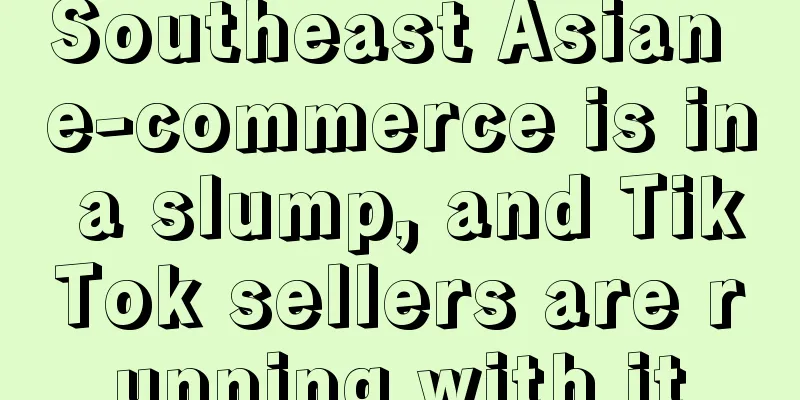Temu, are there many pitfalls overseas?

Pinduoduo in 2023 is like a high-speed money-making machine. In the latest quarterly financial report, Pinduoduo continued its growth momentum from the previous quarter, with the group's revenue reaching 88.9 billion yuan, once again stunning the e-commerce circle with a growth rate of 123%. During the sluggish consumption cycle, Pinduoduo grew against the trend with explosive performance, even crushing the domestic veteran e-commerce company Alibaba. Such a rapid performance growth is largely due to the cross-border e-commerce company Temu. Temu, which has been online for only a year and a half, has already created a low-price whirlwind in the overseas market. As of December 2023, the number of independent visitors to Temu has reached 467 million, second only to Amazon, the king of cross-border e-commerce. In sharp contrast to the explosive performance, Temu merchants are wailing everywhere. In order to achieve the lowest price on the entire network, Temu continues the Pinduoduo model, squeezing the profits of merchants by aggressively lowering prices to gain users. Temu is a money-making machine for users and a meat grinder for merchants. Can it continue to grow rapidly like the main site Pinduoduo? 1. From entry to giving up, low thresholds may not be friendly to merchantsIn order to encourage more merchants to join, Temu launched a full-hosting model when it went online. Merchants only need to provide goods to Temu's domestic warehouse, and the platform will be responsible for providing one-stop services including cross-border logistics, store operations, hot-selling traffic, intellectual property rights, consumer after-sales, etc., to help domestic merchants enter larger overseas markets with minimal investment. However, this seemingly reasonable model actually has undercurrents. Some merchants revealed on Xiaohongshu that Temu's bonus period has come to an end for some merchants without source of goods. Although the full-hosting model is very friendly to inexperienced merchants, the low threshold also means that anyone can come in, and merchants are competing fiercely with each other. The middlemen who do not have the supply, channels and pricing power are completely at a disadvantage. Once a hot product appears, a large number of merchants will flock to it and constantly launch a low-price war. If you want to act as a middleman in Temu, you will go against the trend in the long run, because only the source manufacturers can always offer the lowest price while ensuring the quality of the goods. Temu actually benefits the source manufacturers, and this model is equivalent to strangling the role of the middleman. Temu takes its place and becomes the hub connecting manufacturers and consumers. Many merchants speculate that Temu has ulterior motives: "They want to become an oligopoly and eat up all the benefits of the supply chain." Full trusteeship greatly lowers the threshold for merchants to go overseas, but the other side of it is that the platform has absolute say in what express delivery to send, when the goods can be shipped, how much return shipping costs the seller has to bear... merchants have to listen to the platform. Although Temu has gradually shifted from full hosting to semi-hosting since March this year, the pricing power of the product is still in the hands of Temu, and the semi-hosting model also puts forward more requirements for merchants. It is understood that in the semi-hosting mode, merchants need to set the delivery time and free shipping area in the Temu background. In terms of time options, the platform only provides two options: "shipping within 1 working day" and "shipping within 2 working days", and the delivery time within the distribution area is "2 to 5 working days". Temu has requirements not only on logistics timeliness, but also on pricing for semi-hosted sellers. One seller reported that he shipped the product after successfully verifying the price at the beginning, but was suddenly asked to reduce the price after selling just a few dozen units. The seller did not agree, and the product was removed from the shelves the next day. If full trusteeship is to attract merchants to settle in, then semi-trusteeship is to accelerate the screening of merchants' qualifications. In this cruel elimination competition, only merchants who can adapt to the platform rules can stay. 2. The merchants are responsible for Temu’s rudenessIn addition to some merchants who are dissatisfied with the platform rules, some merchants also support Temu. They said that Temu is still in the early stage of harvesting traffic. Referring to the development of Pinduoduo in China, it will start to operate more benignly after eliminating some merchants who are not adapted to the platform rules. At that time, it is not ruled out that there will be a reversal of reputation like in China. After all, merchants will not reject platforms with traffic. These days, traffic is the springboard for business, and traffic means the number of orders. In fact, the "Four Little Dragons" of China's cross-border e-commerce companies going overseas - Temu, Shein, TikTok, and AliExpress - are all competing for merchants. However, merchants also have their own considerations for different platforms. For clothing categories, Shein will be given priority; some categories that emphasize visual effects are suitable for stimulating user demand through short videos, and content-based Tiktok will be given priority; and those merchants who do not have factories and sell relatively ordinary and popular categories will give priority to which platform has the most traffic when choosing a platform. Obviously, traffic is the most important factor for merchants to choose Temu. The reason why they fall into the trap while cursing is that the domestic e-commerce market is too competitive, and the platforms have entered into a competition for the stock market, but the growth space in the overseas market is much larger than that in China. For domestic merchants who have no experience in going overseas, Temu, which is fully managed and has already captured a certain amount of traffic overseas, is the best choice. A survey report estimates that in 2023, Temu contributed 23% of Pinduoduo Group's total revenue. This figure is expected to rise to 43% in 2024 and exceed 50% in 2025. Xiaohongshu blogger "Temu Dabingge" posted his settlement data on Temu. As an early merchant in Temu, he believes that Temu's profits are still considerable. After the store was in operation for 5 months, the calculated profit has reached more than 700,000. He said: "Merchants who say Temu is a scam are not good enough." Some merchants also told us: "Now all industries in China are in a state of overproduction, and small and medium-sized merchants have fallen to the bottom of the supply chain. What is more distressing to merchants than lowering prices is that they still cannot sell their products even after lowering prices." 3. Will Temu set China’s supply chain back 20 years?As Temu was strangling some middlemen, some people believed that Pinduoduo had destroyed China's entire manufacturing industry, because it was difficult for a manufacturing industry without profits to develop and innovate. One merchant complained on Xiaohongshu: "Temu's price-setting and price-cutting are very serious. With the continuous price cuts, many merchants can only reduce costs by reducing product raw materials and processes. The quality of China's supply chain will regress to 20 years ago." On social platforms such as Weibo and Xiaohongshu, many users have complained about the quality of Temu's products. They even invented a slogan for this: "I hope Temu will stop throwing garbage into the earth." The merchants told us that because of the extreme price pressure, they can only "get what you pay for." One businessman joked, "Jack Ma makes it easy to do business in the world, while Huang Zheng makes it difficult to do business in the world." Many merchants said that they initially joined Temu because they wanted to sell high-quality goods, but the supplier model and bidding strategy continued to squeeze the profit margins of high-quality goods, making it impossible for them to continue. However, some merchants also said that before the emergence of Temu, many source manufacturers had also suffered from high investment costs, difficult operations, inventory backlogs, middlemen making profits, low profits from foundries, and no voice. From this perspective, the intervention of Temu has relieved most merchants of these troubles and shortened the transaction chain and cycle of source manufacturers going overseas. The low-price war initiated by Temu may also be a way to force the domestic supply chain to upgrade and transform. Pinduoduo, Temu's domestic main site, was once disliked by many buyers for selling low-priced and low-quality goods, but now it has achieved a reversal of word-of-mouth, making buyers exclaim "It's really good!". Many buyers said that cheapness is not the only label of Pinduoduo products. Even if the demand is very small, you can find the corresponding products on it. No wonder some buyers describe shopping on Pinduoduo as shopping in a 100-yen store in Japan. Temu first targeted traditional retail formats such as 1-yuan stores overseas, because the core users of 1-yuan stores almost completely overlap with Temu's user profile. 4. How many businesses can withstand such a "roll"?In China, Pinduoduo has also had a huge impact on the interests of merchants, leading to a collective boycott of the platform by merchants. In March last year, an organized "store bombing" campaign broke out on Pinduoduo. Some small and medium-sized merchants, dissatisfied with the platform's excessive favoritism towards consumers, called on small and medium-sized merchants to join the "revenge" campaign. They rushed into dozens of brand stores, placed orders in batches, and then refunded them quickly, insulted customer service staff indiscriminately, and deliberately gave bad reviews, which seriously affected the business order of brand merchants. Behind the "store bombing" incident, we can see that the small and medium-sized merchants on the platform have long been resentful of it. Temu, which was founded not long ago, has also been complained by many merchants, and from time to time there are news reports of merchants coming to "collect debts". Temu, like Pinduoduo, has set up a strict bidding strategy for merchants in order to maintain low prices. For example, a bidding will be conducted once a week for the same product. Merchants who fail to participate in time or fail in the bidding will be restricted from launching new products. The core of the bidding is to see who has the lowest price. Merchants are always under heavy pressure in such an ecosystem, and once they can no longer bear it, they may explode at any time. We can't help but ask, can such a business model that benefits consumers by infringing on the interests of merchants, such a somewhat deformed business ecology, really last long? Before Temu, Wish, a US-based online shopping site, was once listed as one of the world's four largest shopping sites along with Amazon, eBay, and AliExpress, thanks to its low-priced products. However, frequent product problems eventually led to the official boycott of the platform. Although Temu has some control over the quality of goods under the hosting model, the escalating exploitation of suppliers' interests will still push these problems to Temu. In addition to geopolitical risks, infringement of trademarks and patents is also a bomb that can be detonated at any time. Recently, Tiktok encountered a congressional crisis in the United States. Many users and merchants on the platform took the initiative to speak out for it. It is hard to imagine that if it was Temu who was drowning, would there be so many merchants lending them a helping hand? Author: Lime , Editor: Yang Yong Source: WeChat public account "Hydrogen Consumption" (HQingXiaoFei) |
<<: Although metaphysical marketing is good, don’t be greedy
>>: Rebirth: I am doing e-commerce operations
Recommend
Uncovering the secrets of hundreds of new bloggers! An analysis of the three major trends in Xiaohongshu content creation
The rise of hundreds of new bloggers has pushed Xi...
Sober Thoughts Behind the IP Joint Branding Fever
Recently, the joint product "Jiangxiang Latte...
This New Year Goods Festival, they bring back the New Year atmosphere
The New Year is coming, have you prepared the New ...
What does Shopee One-Shop Link mean? How can I join Shopee One-Shop Link?
If you want to open a store on Shopee, you have to...
How does loneliness affect modern people’s consumption?
From single-person meals to single apartments, lon...
Marketing Model Interpretation——AIDMA Consumer Behavior Analysis Model
Marketing workers and academics have conducted a l...
Long video platform: Everyone wants to become a "hit-making machine"
In the competitive landscape of long video platfor...
When Tik Tok puts a "tight ring" on anchors
The consequence of free posting on Douyin is frequ...
9 traffic codes for short videos
In the current fierce competition in the short vid...
Shopee China Seller Center Live Data Dashboard Newly Upgraded
In 2023, cross-border e-commerce has set off a liv...
How to measure the effectiveness of APP overseas KOL marketing? Do you know these 5 indicators?
We have briefly learned about APP going overseas a...
Why do private domains fail to succeed despite huge investments? The reason lies in these 7 conflicts
Why can’t private domain operations be successful?...
Investing over 10 million to make a short drama, what is the brand trying to achieve?
This article deeply explores the new trends and ch...
Is PayPal legal in China? How to use it in China?
Everyone should know about PayPal. It is a very po...
What should I do if my Amazon account is linked? How to operate it?
Amazon is a very popular platform recently. Many m...









